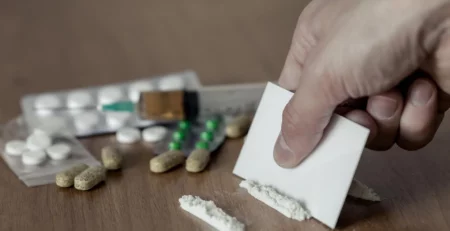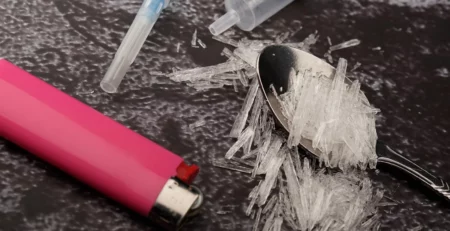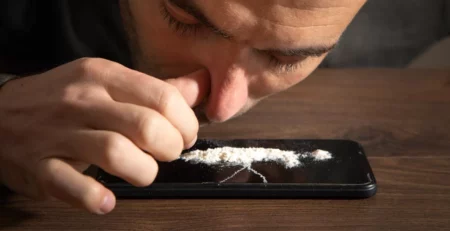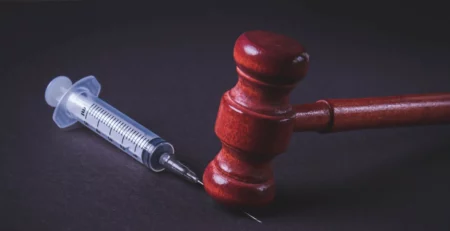The Top 9 Benefits of Quitting Weed
Get Motivated to Stop Marijuana Use Today
Marijuana is one of the most used federally illegal drugs and addictive substances. Now that many states have legalized marijuana, use has increased. One trend we’ve seen throughout the years is an increase in THC in products like cannabis flowers and edibles. Higher THC does not mean inherently more dangerous products, it can often lead to increased use and abuse.
While statistics vary by demographic group, about 1 in 10 people who use cannabis develop a Marijuana Use Disorder. People who started using marijuana at a younger age are at a higher risk of developing an addiction.
If you have a Cannabis or Marijuana Use Disorder, the #1 benefit of quitting weed is that it’s an integral step in addiction recovery. But how do you know if you are abusing cannabis, and what makes quitting marijuana worth it?
First, let’s discuss the top benefits of quitting weed. Then, we’ll talk about how to detect marijuana addiction and how treatment at programs like our acclaimed offerings at Icarus Behavioral Health Nevada can help!
Our Favorite 9 Proven Benefits of Quitting Weed

Cannabis consumption can cause profound negative effects on your mental and physical health. Many people who use cannabis regularly don’t realize that certain mental or physical health issues they experience could be caused or worsened by chronic marijuana use.
With that in mind, here are our top nine benefits of quitting weed.
1) Decreased Risk of Cardiovascular Events
A study of 435,000 cannabis users found that daily cannabis use is associated with a 25% higher chance of having a heart attack and a 42% higher chance of having a stroke. 75% of participants in that study consumed marijuana through smoking.
Stopping weed can help you protect your cardiovascular health.
2) Emotional Benefits and Mental Health
Many people who consume marijuana frequently or in high amounts experience heightened anxiety, disorientation, unpleasant thoughts, or paranoia. Those who consume marijuana are more prone to developing both temporary psychosis and long-lasting mental health conditions, like schizophrenia.
Emotional benefits of quitting weed include but aren’t limited to a lower risk of new or worsening mental health symptoms, mental clarity, more stable moods, and enhanced motivation. It is also common for people to report an overall improved quality of life after they stop using marijuana.
Get Effective Marijuana Detox Options – Call Now!
3) Better Cognitive Function
Perhaps one of the most expected benefits of stopping weed in any form is the impact quitting can have on your cognitive abilities. There’s increasing evidence that cannabis intoxication affects attention and episodic memory. People who cease marijuana consumption often report improved memory and focus.
4) Lowered Likelihood of Accidents and Injury
It is illegal to drive under the influence of marijuana. However, some people with an addiction to marijuana engage in risky behaviors, such as driving or operating heavy machinery, while under the influence of the drug.
A small study on postal workers found that employees who tested positive for cannabis on their pre-employment drug screening had 55% more industrial accidents and 85% more injuries.
It is relevant to note that THC, the primary psychoactive compound in cannabis products, leads to slowed reaction time. You may be less aware of your surroundings or less able to react to situations in time after consuming or smoking weed.
5) Family Life and Personal Relationships
Many people who face marijuana dependence report problems in interpersonal relationships. Some of these problems may be due to the time spent using marijuana or favoring it over other activities, such as those you’d usually engage in with friends and family.
Financial and legal problems, mood swings, lowered mental clarity, and other effects of marijuana can also strain personal relationships. When you stop smoking marijuana (or otherwise consuming the drug), you can create new, healthy bonds or rebuild interpersonal relationships harmed by cannabis use.
Additionally, your friends and loved ones who are averse to the smell of weed or even vape pens will thank you!
6) Improved Sleep Patterns

While some people use cannabis for sleep, marijuana use can actually disrupt sleep patterns and lead to trouble falling or staying asleep. Stopping marijuana use, especially paired with developing better sleep hygiene or getting adequate treatment for health problems that affect your sleep, can enhance sleep quality and help you get the rest you need.
7) A Healthier Respiratory System
Marijuana smoke (or even vapor) is associated with lung damage, airway inflammation, chronic bronchitis, wheezing, coughing, an increased risk of respiratory infections, and other respiratory issues. You may notice phlegm, a sore throat, and other physical implications.
Like with tobacco smoke, there are chemicals and toxins in marijuana smoke that can impair lung or respiratory health. When you stop smoking weed, you benefit from enhanced lung function, and your risk of respiratory damage decreases.
8) Work and Education Outcomes
In research, frequent cannabis use is heavily associated with poor educational outcomes. For example, higher dropout rates and a lower likelihood of finishing college. Marijuana use can impact your ability to get certain work positions that prohibit cannabis use.
Quitting marijuana can give you more work opportunities and peace of mind at jobs that require drug testing. Many people who quit smoking weed report increased productivity and motivation, which is likely to benefit you in the workplace.
24 Hour Marijuana Treatment Helpline – Call Now!
9) Reduced Risk of Financial and Legal Problems
With the knowledge that work and education outcomes can be affected by marijuana use, it’s no surprise that financial problems can emerge as a result. Ongoing marijuana use is linked to lower income levels and an increased need for support services. Like with other forms of substance abuse, it’s also relevant to note that many chronic marijuana users spend a significant amount of money on marijuana.
Try calculating the amount you spend each week, month, and year on cannabis or cannabis products like edibles and concentrates. Even $60 a week adds up to over $3,000 a year in spending on pot, all of which leaves you with little to show for it.
Some studies show that higher rates of criminal behavior are associated with heavy marijuana use. While it is legal in many areas across the US, marijuana is a Schedule I controlled substance at this time. People with an addiction to weed may use the drug in inappropriate situations, which could result in legal issues.
Legal and financial problems can both have lasting effects on your life. Quitting marijuana can give you peace of mind while decreasing the risk of these outcomes.
What if I Can’t Stop Smoking Weed? Understanding Cannabis Use Disorder (CUD)

Cannabis Use Disorder, or CUD, is another name for Marijuana Use Disorder. If you find it hard to quit marijuana or decrease the amount you use, even if you want to or have tried to stop, you may have an addiction to marijuana. Knowing the signs can help you detect marijuana addiction in yourself or someone you love.
Other signs and symptoms of weed addiction include but aren’t limited to the following:
- Continuing to use marijuana even when it causes problems at work, school, or home.
- Smoking marijuana or otherwise using the drug despite new or worsening physical or mental health problems it has caused.
- Continuing to use marijuana despite the negative effects it has had on your interpersonal relationships or social life.
- Needing to use marijuana in higher amounts than before to get the desired effects or high.
- Consuming marijuana in high-risk situations, such as before you drive a car.
- Spending a significant amount of time using or under the effects of marijuana.
- Giving up previously enjoyed or important activities in favor of using marijuana.
- Marijuana cravings.
Addiction treatment can help chronic marijuana users quit weed successfully. In treatment, you’ll work to build healthier coping mechanisms, identify triggers, and address underlying concerns that might play a role in chronic marijuana use.
For example, mental health concerns are prevalent among those with any type of substance use disorders, and can be a huge part of those seeking to self-medicate with cannabis use.
Treating Marijuana and Dual Diagnosis Disorders
Smoking weed and other forms of cannabis consumption can indeed cause new or worsened mental health symptoms. Despite this, many people use cannabis to self-medicate. For example, alongside other factors, such as using cannabis early in life, teenage depression and trauma history can increase the risk of problematic marijuana use and addiction.
If you experience any form of drug abuse and have one or more co-occurring mental health disorders, it is vital to address both in treatment. Substance abuse research shows that treating addiction and comorbid mental health conditions comprehensively increases the likelihood of positive treatment outcomes. If you are attempting to fix problems with concerns like sleep, or anxiety with cannabis, it only makes sense to address those underlying issues.
Icarus Behavioral Health Nevada provides dual diagnosis treatment for clients with substance use disorders and one or more comorbid conditions. We focus on whole-person healing and use evidence-based therapies that support optimal recovery outcomes and personal growth.
All Icarus Nevada clients get individualized treatment plans that consider their unique needs.
Marijuana Addiction Treatment at Icarus Behavioral Health in Nevada

Icarus Nevada has a full continuum of care so that those facing all levels of substance abuse, dual diagnosis, or mental health issues can get their needs met. Depending on your symptom severity and other factors, one type of treatment may be more suitable for you than another.
The two main types of substance use disorder treatment used to address marijuana addiction are inpatient rehab programs and outpatient programs. Some, but not all, clients will also benefit from detox or withdrawal management services.
When you contact us for help with marijuana addiction, we can give you a free (and completely confidential) intake assessment that will help you decide on a starting level of care.
Detox for Marijuana Withdrawal Symptoms
Some people who stop using marijuana will experience withdrawal symptoms. While marijuana withdrawal symptoms are rarely dangerous, they can cause notable mental and physical discomfort.
During this time, the risk of relapse is high. This risk is part of why a cannabis detox setting can be helpful for some people who want to quit marijuana, even if they don’t experience severe symptoms when they quit smoking weed.
Here are some of the most common marijuana withdrawal symptoms:
- Marijuana cravings.
- Anxiety.
- Irritability.
- Disturbed sleep or dreams.
- Depressed mood.
- Loss of appetite.
- Anger or agitation.
Less common weed withdrawal symptoms include but are not limited to sweating, chills, headaches, physical tension, and stomach pain. The detox services at Icarus Nevada can help you get through withdrawals that may emerge as a result of quitting weed. In detox, healthcare professionals help you navigate and manage withdrawal symptoms.
More serious withdrawals can present in people who not only used or smoked marijuana but also engaged in other forms of drug abuse. In this case, detox services can be vital and can even be life-saving. Both inpatient and outpatient detox services are available.
Inpatient Rehab for Marijuana Addiction in Nevada
Inpatient rehab at Icarus provides 24/7 supervision and removes you from daily life triggers. Clients with moderate to severe substance abuse or mental health symptoms usually start with inpatient treatment. Our inpatient clients have access to all of Icarus Nevada’s premium on-site amenities.
During residential treatment, your schedule will consist of treatment activities such as regular groups, supportive recreation activities, individual therapy, life skills, meals, and other activities. We also offer job and education support, family therapy, help with pending legal issues, and other services.
Outpatient Treatment for Marijuana Addiction in Nevada
Outpatient treatment can be an ideal fit for those who do not need the 24/7 supervision offered by inpatient rehab programs. Icarus Nevada has multiple levels of outpatient care, which vary in intensity. Most of the same services offered to inpatient clients are also available to outpatient clients.
Our partial hospitalization program (PHP) is the most intensive variety of outpatient treatment at Icarus Nevada. In PHP at Icarus, you come to treatment most days of the week and spend the majority of the day in programs. However, you get to return home or to sober living at night. If you’re interested in getting a sober living placement, please let us know, and we can help.
The intensive outpatient program (IOP) at Icarus Nevada is the next step below PHP. Compared to PHP, IOP clients have a reduced time commitment, leaving more time for outside obligations, like work or school.
Standard outpatient services have an even lower time commitment than IOP. They are usually best used for clients transitioning out of a higher level of care.
What Happens Next? Taking Steps Toward Stopping Cannabis Use

Discontinuing problematic marijuana use can change your life for the better. If you’re ready to improve your overall well-being and overcome the impacts of marijuana abuse, contact Icarus Behavioral Health Nevada today.
We understand many high-functioning cannabis users are still in need of help, and we will work with you to ensure you get the right level of care and support for lasting abstinence.
We offer free insurance verification services and are here to talk you through the next steps.
Get Help Quitting Marijuana at Icarus in Nevada Today
Icarus Behavioral Health Nevada accepts most forms of health insurance and treats varying levels of addiction and mental health concerns. If you need help quitting marijuana, Icarus Nevada is here to offer support, help you or your loved one stop using marijuana successfully, and achieve lasting recovery.
Call our admissions line to find out more about our programs, book a tour of Icarus Nevada, or get answers to your treatment questions now!
Up To 100% of Rehab Costs Covered By Insurance – Call Now!
FAQs About Discontinuing Marijuana Use and Treatment for CUD
How long does it take for your brain to recover from weed?
While some people do experience lasting effects, not smoking weed comes with many physical and mental health benefits. After quitting weed, you may notice some benefits relatively quickly. For example, after not smoking weed for even a few weeks, you may notice some improvements in respiratory function.
However, since cannabis can stay in the body for 2-4 weeks, it’s important to be patient with yourself. The time it takes for your brain and physical health to recover from marijuana can vary based on factors such as how long you used marijuana before quitting weed. Having emotional support throughout the process makes a difference.
Is marijuana addictive?
Yes, one can develop a marijuana addiction, also known as a cannabis use disorder. That said, it is also possible to heal from marijuana dependence and quit weed for good.
What is considered heavy marijuana use?
Heavy marijuana use is usually defined as daily or near-daily use of the drug. People who engage in heavy marijuana use are more likely to develop an addiction.
References
- https://www.samhsa.gov/marijuana
- https://www.nih.gov/news-events/news-releases/smoking-cannabis-associated-increased-risk-heart-attack-stroke
- https://nida.nih.gov/publications/research-reports/marijuana/how-does-marijuana-use-affect-school-work-social-life
- https://www.cdc.gov/marijuana/health-effects/addiction.html
- https://www.sciencedirect.com/science/article/pii/S2352250X20301135?via%3Dihub
- https://www.ncbi.nlm.nih.gov/pmc/articles/PMC9110555/
- https://www.samhsa.gov/co-occurring-disorders











